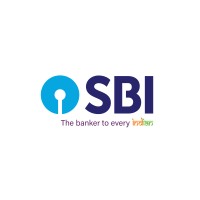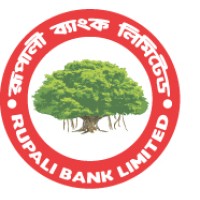
State Bank of India Company Cyber Security Posture
bank.sbiWe are the largest Indian Public Sector Banking & Financial Services Company. Headquartered in Mumbai, our national presence across the country with over 22,000 branches and globally across all time-zones at 227 locations in 30 countries, makes us the leader in the sector. Our legacy ranges back to the British era through the Imperial Bank of India, founded in 1806. Today, we are a conglomerate employing skilled professionals who are successfully taking the legacy forward through our specialized and customized financial services designed to cater the needs of Corporates, SMEs, NRIs & Retail customers. For more information about Career & Life at SBI, please visit : https://bank.sbi/web/careers Disclaimer: SBI shall bear no responsibility for confidentiality of information shared with SBI through LinkedIn.
SBI Company Details
state-bank-of-india
108797 employees
3357750.0
522
Banking
bank.sbi
Scan still pending
STA_1163297
In-progress
Between 800 and 900
This score is AI-generated and less favored by cyber insurers, who prefer the TPRM score.
 SBI Global Score
SBI Global Score.png)

State Bank of India Company Scoring based on AI Models
| Model Name | Date | Description | Current Score Difference | Score |
|---|---|---|---|---|
| AVERAGE-Industry | 03-12-2025 | This score represents the average cybersecurity rating of companies already scanned within the same industry. It provides a benchmark to compare an individual company's security posture against its industry peers. | N/A | Between 800 and 900 |
State Bank of India Company Cyber Security News & History
| Entity | Type | Severity | Impact | Seen | Url ID | Details | View |
|---|---|---|---|---|---|---|---|
| State Bank of India | Breach | 100 | 5 | 10/2016 | STA173651123 | Link | |
Rankiteo Explanation : Attack threatening the organization’s existenceDescription: Several Indian banks have taken drastic steps in response to a security breach that may have compromised up to 3.25 million debit cards—or 0.5% of the approximately 700 million debit cards that Indian banks have issued. The financial institution is Hitachi Payment Services, a subsidiary of Hitachi Ltd. that oversees ATM network processing for Yes Bank Ltd., according to banking industry insiders. After that, the State Bank of India quickly disabled a few clients' debit cards, and it was currently replacing those cards to stop fraud. The top three private sector lenders, ICICI Bank, HDFC Bank, and Axis Bank, each stated in separate announcements that there may have been card account breaches following usage at non-bank ATMs. Additionally, certain consumers' debit cards are being reissued by Standard Chartered's Indian division. | |||||||
| SBI | Vulnerability | 50 | 4 | 7/2025 | STA613070225 | Link | |
Rankiteo Explanation : Attack with significant impact with customers data leaksDescription: A significant security flaw identified in the YONO SBI banking application exposes millions of users to cybersecurity threats. The vulnerability, CVE-2025-45080, affects version 1.23.36 of the app, allowing unencrypted data transmission due to insecure network configuration settings. This enables man-in-the-middle attacks, putting banking credentials, transactions, and personal data at risk of theft, especially on public Wi-Fi networks. | |||||||
State Bank of India Company Subsidiaries

We are the largest Indian Public Sector Banking & Financial Services Company. Headquartered in Mumbai, our national presence across the country with over 22,000 branches and globally across all time-zones at 227 locations in 30 countries, makes us the leader in the sector. Our legacy ranges back to the British era through the Imperial Bank of India, founded in 1806. Today, we are a conglomerate employing skilled professionals who are successfully taking the legacy forward through our specialized and customized financial services designed to cater the needs of Corporates, SMEs, NRIs & Retail customers. For more information about Career & Life at SBI, please visit : https://bank.sbi/web/careers Disclaimer: SBI shall bear no responsibility for confidentiality of information shared with SBI through LinkedIn.
Access Data Using Our API

Get company history
.png)
SBI Cyber Security News
YONO SBI App Vulnerability Enables Man-in-the-Middle Attacks
A major security vulnerability has been discovered in the YONO SBI: Banking & Lifestyle mobile application, version 1.23.36, which could put ...
YONO SBI Banking App Vulnerability Exposes Users to Man-in-the-Middle Attack
A critical security flaw has been discovered in the widely used YONO SBI: Banking & Lifestyle app, exposing millions of users to MITM.
From Security Gatekeeper to Strategic Visionary
Nambiar's journey mirrors a broader transformation. Cybersecurity has ascended from an afterthought to a strategic pillar of business in India, ...
Cybersecurity professionals limited, big challenge for future: SBI chief CS Setty
Mumbai: SBI Chairman CS Setty on Thursday flagged the limited supply of cybersecurity professionals as a "big challenge" for the future.
Beware! Fake SBI Reward APK Attacking Users To Deliver Android Malware
Cybersecurity experts have uncovered a new Android malware campaign targeting unsuspecting users through a fake SBI Reward app.
State Bank of India’s customers exposed in data leakage
Customers of State Bank of India were left vulnerable after an unprotected server allowed anyone to access financial information. India.png.
State Bank of India – Digital Transformation Strategies
State Bank of India (SBI) is tapping the power of emerging technologies to accelerate its digital transformation strategy. AI, big data, cloud, ...
Supreme Court Ruling a Wake-Up Call for Banks on Cybersecurity: Banking Expert Vidyadhar Anaskar
The Supreme Court's recent ruling, which holds banks fully responsible for fraudulent transactions affecting customer accounts, is a landmark decision that ...
Banks facing challenge in getting cyber security talent: SBI chairman
There is also a challenge in improving digital literacy while moving customers to new technologies and protecting systems from cyber security ...

SBI Similar Companies

SEB
SEB is a leading northern European financial services group with a strong belief that entrepreneurial minds and innovative companies are key in creating a better world. SEB takes a long-term perspective and supports its customers in good times and bad. In Sweden and the Baltic countries, SEB offe

Santander UK
Our purpose at Santander UK is to help people and businesses prosper. We are a leading financial services provider, offering a wide range of personal and commercial financial products and services, with around 15 million customers across our Retail and Corporate Businesses. We have set ourselves a

Russian Standard Bank
Russian Standard Bank - leading private bank in the lending market. Bank sells credit programs in more than 1,200 locations across the country. Number of clients of the bank exceeded 23 millions, the total amount of consumer loans exceeded $30 billions. The number of trading partners of the Bank

Janalakshmi Financial Services
Jana Small Finance Bank’s vision is to be the leading digitized bank serving all customer segments and communities of an aspirational India. The bank commenced operations on 28, March 2018. In 2017, Jana was also featured in ‘Fortune - The Top 500’ largest corporations in India and was recently aw

HBL
HBL was the first commercial bank to be established in Pakistan in 1947. Over the years, HBL has grown its branch network and maintained its position as the largest private sector bank with over 1,700 branches and 2,000 ATMs globally and a customer base exceeding ten million relationships. The Gov

Rupali Bank Limited
Rupali Bank (Bengali: রূপালী ব্যাংক) is a commercial bank in Bangladesh. It was established as a nationalised bank in 1972 under the Bangladesh Banks Nationalisation Order, through the amalgamation of the branches of Muslim Commercial Bank, Australasia Bank and Standard Bank that were operating in E

Frequently Asked Questions
Explore insights on cybersecurity incidents, risk posture, and Rankiteo's assessments.
SBI CyberSecurity History Information
How many cyber incidents has SBI faced?
Total Incidents: According to Rankiteo, SBI has faced 2 incidents in the past.
What types of cybersecurity incidents have occurred at SBI?
Incident Types: The types of cybersecurity incidents that have occurred incidents Vulnerability and Breach.
How does SBI detect and respond to cybersecurity incidents?
Detection and Response: The company detects and responds to cybersecurity incidents through communication strategy with Advisory to customers to avoid using the app on unsecured networks until patched and containment measures with Disabling Debit Cards, Reissuing Debit Cards.
Incident Details
Can you provide details on each incident?

Incident : Vulnerability
Title: CVE-2025-45080 in YONO SBI Banking App
Description: A significant security flaw identified in the YONO SBI banking application allows unencrypted data transmission, potentially exposing millions of users to cybersecurity threats. The vulnerability, designated as CVE-2025-45080, affects version 1.23.36 of the app and stems from insecure network configuration settings.
Type: Vulnerability
Attack Vector: Man-in-the-middle (MITM) attacks
Vulnerability Exploited: CVE-2025-45080
Motivation: Data theft, financial fraud

Incident : Data Breach
Title: Debit Card Breach Affecting Multiple Indian Banks
Description: Several Indian banks have taken drastic steps in response to a security breach that may have compromised up to 3.25 million debit cards, or 0.5% of the approximately 700 million debit cards that Indian banks have issued.
Type: Data Breach
Attack Vector: Compromised ATM Network
Vulnerability Exploited: ATM Network Processing
Motivation: Fraud
What are the most common types of attacks the company has faced?
Common Attack Types: The most common types of attacks the company has faced is Breach.
How does the company identify the attack vectors used in incidents?
Identification of Attack Vectors: The company identifies the attack vectors used in incidents through Insecure network configuration settings in AndroidManifest.xml and Non-bank ATMs.
Impact of the Incidents
What was the impact of each incident?

Incident : Vulnerability STA613070225
Data Compromised: Banking credentials, Financial transaction data, Personal information
Systems Affected: YONO SBI: Banking & Lifestyle app v1.23.36
Identity Theft Risk: High
Payment Information Risk: High

Incident : Data Breach STA173651123
Data Compromised: Debit Card Information
Systems Affected: ATM Networks
Operational Impact: Reissuance of Debit Cards
What types of data are most commonly compromised in incidents?
Commonly Compromised Data Types: The types of data most commonly compromised in incidents are Banking credentials, Financial transaction data, Personal information and Debit Card Information.
Which entities were affected by each incident?

Incident : Vulnerability STA613070225
Entity Type: Financial Institution
Industry: Banking
Customers Affected: Millions of SBI users

Incident : Data Breach STA173651123
Entity Type: Financial Institution
Industry: Finance
Location: India
Customers Affected: 3.25 million
Response to the Incidents
What measures were taken in response to each incident?

Incident : Vulnerability STA613070225
Communication Strategy: Advisory to customers to avoid using the app on unsecured networks until patched

Incident : Data Breach STA173651123
Containment Measures: Disabling Debit Cards, Reissuing Debit Cards
Data Breach Information
What type of data was compromised in each breach?

Incident : Vulnerability STA613070225
Type of Data Compromised: Banking credentials, Financial transaction data, Personal information
Sensitivity of Data: High
Data Encryption: None
Personally Identifiable Information: Yes

Incident : Data Breach STA173651123
Type of Data Compromised: Debit Card Information
Number of Records Exposed: 3.25 million
Sensitivity of Data: High
How does the company handle incidents involving personally identifiable information (PII)?
Handling of PII Incidents: The company handles incidents involving personally identifiable information (PII) through were Disabling Debit Cards and Reissuing Debit Cards.
Lessons Learned and Recommendations
What lessons were learned from each incident?

Incident : Vulnerability STA613070225
Lessons Learned: Prioritize security configuration reviews and implement comprehensive security testing procedures throughout the application development lifecycle.
What recommendations were made to prevent future incidents?

Incident : Vulnerability STA613070225
Recommendations: Avoid using the application on unsecured networks until a security patch is released.
What are the key lessons learned from past incidents?
Key Lessons Learned: The key lessons learned from past incidents are Prioritize security configuration reviews and implement comprehensive security testing procedures throughout the application development lifecycle.
What recommendations has the company implemented to improve cybersecurity?
Implemented Recommendations: The company has implemented the following recommendations to improve cybersecurity: Avoid using the application on unsecured networks until a security patch is released..
Investigation Status
How does the company communicate the status of incident investigations to stakeholders?
Communication of Investigation Status: The company communicates the status of incident investigations to stakeholders through was Advisory to customers to avoid using the app on unsecured networks until patched.
Stakeholder and Customer Advisories
Were there any advisories issued to stakeholders or customers for each incident?

Incident : Vulnerability STA613070225
Customer Advisories: Advisory to customers to avoid using the app on unsecured networks until patched
What advisories does the company provide to stakeholders and customers following an incident?
Advisories Provided: The company provides the following advisories to stakeholders and customers following an incident: was Advisory to customers to avoid using the app on unsecured networks until patched.
Initial Access Broker
How did the initial access broker gain entry for each incident?

Incident : Vulnerability STA613070225
Entry Point: Insecure network configuration settings in AndroidManifest.xml
High Value Targets: Banking credentials, Financial transaction data, Personal information
Data Sold on Dark Web: Banking credentials, Financial transaction data, Personal information

Incident : Data Breach STA173651123
Entry Point: Non-bank ATMs
Post-Incident Analysis
What were the root causes and corrective actions taken for each incident?

Incident : Vulnerability STA613070225
Root Causes: Insecure network configuration settings

Incident : Data Breach STA173651123
Root Causes: Compromised ATM Network Processing
Corrective Actions: Reissuance of Debit Cards
What corrective actions has the company taken based on post-incident analysis?
Corrective Actions Taken: The company has taken the following corrective actions based on post-incident analysis: Reissuance of Debit Cards.
Additional Questions
Impact of the Incidents
What was the most significant data compromised in an incident?
Most Significant Data Compromised: The most significant data compromised in an incident were Banking credentials, Financial transaction data, Personal information and Debit Card Information.
What was the most significant system affected in an incident?
Most Significant System Affected: The most significant system affected in an incident was YONO SBI: Banking & Lifestyle app v1.23.36 and ATM Networks.
Response to the Incidents
What containment measures were taken in the most recent incident?
Containment Measures in Most Recent Incident: The containment measures taken in the most recent incident were Disabling Debit Cards and Reissuing Debit Cards.
Data Breach Information
What was the most sensitive data compromised in a breach?
Most Sensitive Data Compromised: The most sensitive data compromised in a breach were Banking credentials, Financial transaction data, Personal information and Debit Card Information.
What was the number of records exposed in the most significant breach?
Number of Records Exposed in Most Significant Breach: The number of records exposed in the most significant breach was 3.2M.
Lessons Learned and Recommendations
What was the most significant lesson learned from past incidents?
Most Significant Lesson Learned: The most significant lesson learned from past incidents was Prioritize security configuration reviews and implement comprehensive security testing procedures throughout the application development lifecycle.
What was the most significant recommendation implemented to improve cybersecurity?
Most Significant Recommendation Implemented: The most significant recommendation implemented to improve cybersecurity was Avoid using the application on unsecured networks until a security patch is released..
Stakeholder and Customer Advisories
What was the most recent customer advisory issued?
Most Recent Customer Advisory: The most recent customer advisory issued was was an Advisory to customers to avoid using the app on unsecured networks until patched.
Initial Access Broker
What was the most recent entry point used by an initial access broker?
Most Recent Entry Point: The most recent entry point used by an initial access broker were an Insecure network configuration settings in AndroidManifest.xml and Non-bank ATMs.
Post-Incident Analysis
What was the most significant root cause identified in post-incident analysis?
Most Significant Root Cause: The most significant root cause identified in post-incident analysis was Insecure network configuration settings, Compromised ATM Network Processing.
What was the most significant corrective action taken based on post-incident analysis?
Most Significant Corrective Action: The most significant corrective action taken based on post-incident analysis was Reissuance of Debit Cards.
What Do We Measure?
















Every week, Rankiteo analyzes billions of signals to give organizations a sharper, faster view of emerging risks. With deeper, more actionable intelligence at their fingertips, security teams can outpace threat actors, respond instantly to Zero-Day attacks, and dramatically shrink their risk exposure window.
These are some of the factors we use to calculate the overall score:
Identify exposed access points, detect misconfigured SSL certificates, and uncover vulnerabilities across the network infrastructure.
Gain visibility into the software components used within an organization to detect vulnerabilities, manage risk, and ensure supply chain security.
Monitor and manage all IT assets and their configurations to ensure accurate, real-time visibility across the company's technology environment.
Leverage real-time insights on active threats, malware campaigns, and emerging vulnerabilities to proactively defend against evolving cyberattacks.




